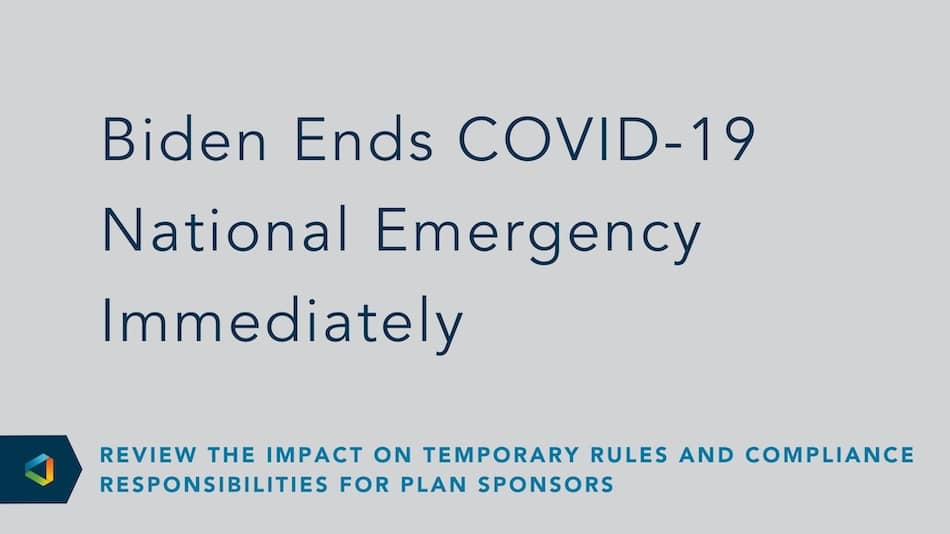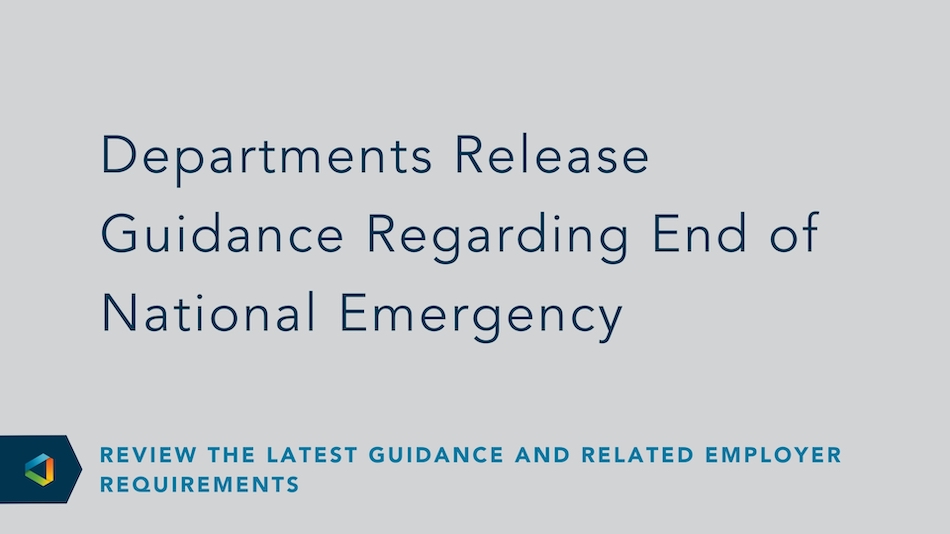Compliance Confidence
COVID-19 Relief: States Begin Extending Insurance Premium Grace Periods
COVID-19 Relief: States Begin Extending Insurance Premium Grace Periods
As COVID-19 triggered layoffs and furloughs spread, some states have begun mandating that insurance issuers provide a longer grace period for premium payments. These measures are targeted at ensuring that participants can remain covered and have access to healthcare coverage during this public health emergency.
Here are some of the states relief plans that have been announced to date. For the most up-to-date information on state relief, visit the state’s Department of Insurance website.
| State | Relief | Effective |
|---|---|---|
| Alaska | Prohibits carriers from terminating insurance contracts due to nonpayment.
|
March 18, 2020 – June 1, 2020 |
| Arkansas | Sixty (60) day moratorium on the cancellation/non-renewal of insurance policies for the non-payment of premiums for Arkansans diagnosed with/positively tested for COVID-19.
|
March 20, 2020 – May 19, 2020 |
| California | Requests that all insurance companies provide their insureds with at least a 60-day grace period to pay insurance premiums, so insurance policies are not cancelled for nonpayment of premium.
|
March 18, 2020 |
| Connecticut | For a period of sixty (60) calendar days ending on June 1, 2020, no insurer may, without a court order, lapse, terminate or cause to be forfeited a covered insurance policy because a covered policyholder does not pay a premium or interest or indebtedness on a premium under the policy that is due except as provided hereunder.
|
April 1, 2020 |
| Delaware | Requests that all carriers doing business in Delaware suspend cancellations and nonrenewals due to nonpayment of premium.
|
March 20, 2020 until withdrawn |
| Georgia | Directs that, for the next 60 days, all Property and Casualty Insurers and Health Insurers refrain from canceling any policy, for the cause of non-payment. | March 20, 2020 – May 19, 2020 |
| Maryland | Encourage all Life & Health Carriers and Property and Casualty Insurers to make reasonable accommodations so that individuals and businesses do not lose coverage due to non-payment of premium.
|
March 20, 2020 |
| Massachusetts | Health insurance carriers are advised to work with employers experiencing financial hardship on a case-by-case basis to allow for reasonable flexibility in the timing of premium payments. | March 23, 2020 |
| Ohio | Allows employers to offer employees a grace period for insurance premiums. Additionally, all health insurers must provide the option of deferring premium payments interest free for up to 60 calendar days from the original premium due date.
Health insurers must allow employers to continue covering employees even if the employee would otherwise become ineligible for insurance because of a decrease in the hours worked a week. |
March 20, 2020 until expiration of Ohio state of emergency. |
* Due to ERISA preemption, self-insured plans may be exempt from these requirements to the extent that the guidance regulates insurance.
For more information on evolving compliance regulations the wake of the COVID-19 pandemic, visit the OneDigital Coronavirus Advisory Hub, or reach out to your local OneDigital advisory team.
Share
Related News & Updates

Article
IRS Issues Final Rule to Fix “Family Glitch”
10.12.2022



